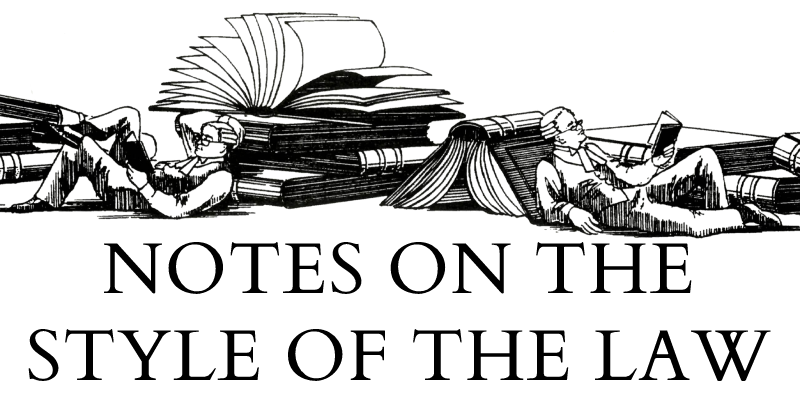
 onomastics
onomastics  hypochoristics
hypochoristics  nicknames
nicknames  sobriquets
sobriquets  criminal law
criminal law  judgments
judgments  judicial style
judicial style  The Bahamas
The Bahamas  Privy Council
Privy Council  decorum
decorum  propriety
propriety  dignity
dignity 

Crime, in fiction, has a certain glamour and cachet. Crime looks cool, even in films designed to deconstruct the myth that crimes is cool. Think, for instance, of the generation of financiers inspired by the deliberately negatively depicted character Gordon Gekko in Wall Street (1987). The language of criminal suaveness is often conveyed by a nom de crime, from the titular character in the original version Scarface (1932) to ‘Brick Top’ in Snatch (2000). In far more sordid world of real crime, gangsters often construct or adopt such hypochoristics, trying to add sparkle to the rather horrid life of lawbreaking.
In the recent Privy Council case of Moss v The King, [2023] UKPC 28, Bah the Board, per Lord Stephens of Creevyloughgare, had to deal with an appeal against conviction and sentence arising out of a conspiracy to commit murder in The Bahamas orchestrated by members of the criminal underground. After using real names on first mention, the Board proceeded to exclusively make use of the criminal sobriquet, even when analysing the case (rather than quoting the evidence):
[59] First, after the approach by Razor both the appellant and the deceased removed all photographs of them together from their social media[…]
[65] Seventh, the appellant states that on the way to the airport Big Meech threatened her[…]
It is perfectly proper to inform the reader as to the existence of these nicknames, especially because the evidence and statements in such a criminal trial may make frequent reference to them. The argot of the street is hardly foreign to the criminal courts, and where witness evidence is being analysed, it is almost always necessary to do so without any substantive alteration to the words used.
This, however, is quite distinct from how a judge ought to speak when giving her analysis. When discussing the case, rather than reproducing evidence, the law ought not to give sanction to the grandiose aspirations of criminals. These criminal sobriquets are nothing more than attempts to disguise the (in this case, very literally) murderous operations of brutal and violent gangs. The names function to intimidate others—who would want to cross a chap called ‘Razor’?—and empower participants in such violence—Jamaric Green perhaps felt an inflated ego from being called ‘Big Meech’. Where the actual names are known, they must be used in all analytical discussion, for to do otherwise is to propagate myths and legends about people who deserve no such onomastic immortality.

© , Elijah Granet, but licensed to all under the terms of Creative Commons licence CC-BY-SA 4.0
Published by

GRANET PRESS
LIMITED

Comments
Post a Comment
Contributions are always welcome!